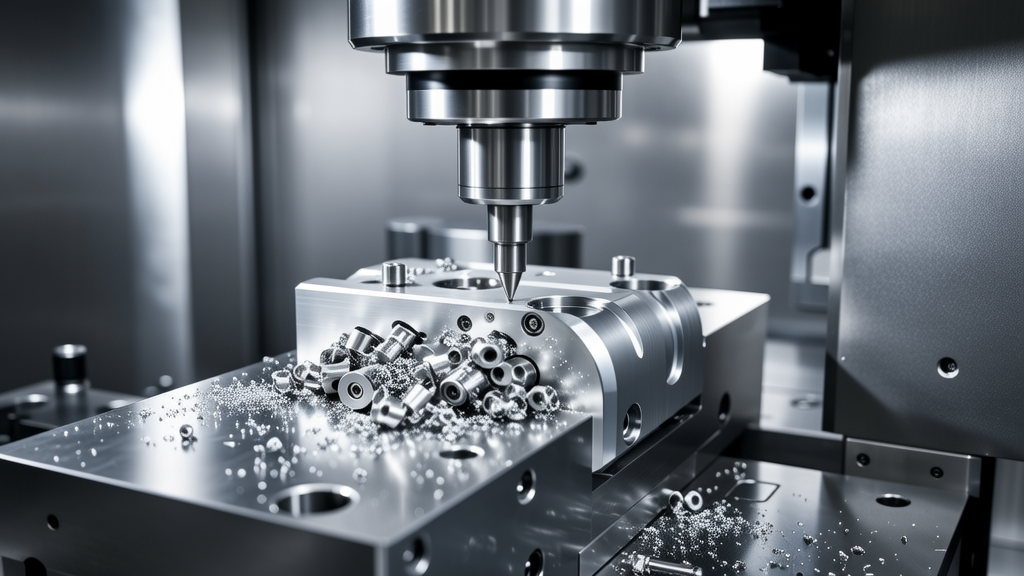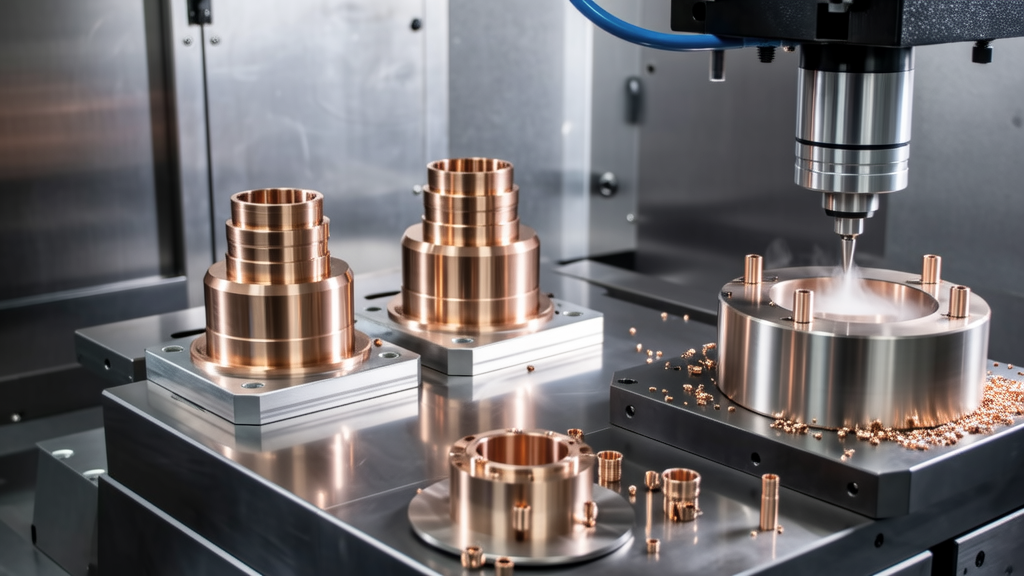Understanding Small-Batch Production
First off, let’s talk about what small-batch production means in the context of CNC machining. Small-batch production typically involves creating limited quantities of a product, which can be a real game-changer for businesses that need flexibility and customization. I’ve seen manufacturers who aim to do this effectively, but it can sometimes be tricky.
For example, a friend of mine had a client producing custom parts in small quantities. They faced issues with lead times because they thought they could just rely on standard, mass-produced components. When they switched to small-batch CNC machining, not only did they cut down on inventory costs, but they also increased their responsiveness to customer needs. This method allows businesses in rapidly changing industries to adjust their production on a whim.
Here’s the insider tip: small-batch production in Shenzhen is particularly advantageous because of the city’s advanced technology infrastructure and skilled workforce. The region is known for its agility and innovation in manufacturing, which sets it apart from other areas. But is it ideal for everyone? That leads us to the next consideration.
Advantages and Challenges
Cost Efficiency
Pricing is often a concern for many businesses. CNC machining can be costly if you don’t have a clear strategy. In Shenzhen, prices can range dramatically depending on part complexity and batch size. You might think that small-batch production is generally more expensive due to lesser economies of scale, but that’s not always the case. My company has leveraged local suppliers to keep costs manageable, even for small runs.
Flexibility and Customization
A major benefit of opting for small batches is the ability to customize products. Whether you need a specific material, finish, or dimension, CNC machining allows for adjustments without excessive retooling. This flexibility can lead to innovative products that meet niche market demands.
However, keep in mind that not all service providers can offer this level of service. Always do your due diligence before selecting a CNC machining partner. Ensure they have a solid track record in small-batch production. You can ask for case studies or references. An experience I had involved a small client who wanted to pivot from mass production to bespoke items. After connecting them with a Shenzhen-based CNC service, they saw a 50% increase in customer satisfaction. You see, the right partner makes a difference.

Quality Assurance
In any manufacturing process, quality assurance is paramount. In small-batch production, maintaining tight tolerances can be challenging. It’s crucial to establish rigorous quality control measures early on to avoid pitfalls down the line. What I’ve suggested to clients is to include several quality checks throughout the production process. This way, issues can be caught before the finished product reaches the customer. It’s generally less stressful compared to a mass production defect that affects hundreds or thousands of items at once.
In Shenzhen, manufacturers often have sophisticated quality control systems rooted in their practices to ensure that every small batch meets high standards.
Making the Right Decision
Ultimately, whether small-batch production in Shenzhen is right for CNC machining in 2025 will depend on your specific needs. Companies looking for customization and flexibility will likely find the advantages far outstrip the challenges. However, it’s crucial to evaluate your options carefully. Chat with potential partners, understand their capabilities, and make sure they can match your quality and service expectations.
If you are contemplating moving to small-batch production, consider reaching out for more tailored advice. Your experience may differ based on the specifics of your projects, and I’m here to guide you through that process. If you have any questions or want to share your experiences with small-batch production, feel free to reach out.
What is small-batch production in CNC machining?
Small-batch production refers to creating limited quantities of a product, allowing businesses to be more flexible and responsive to customer demands.

In CNC machining, this means you can customize products without the need for mass production. It’s a great way for companies to test ideas or cater to niche markets.
What are the advantages of small-batch production?
One major advantage is cost efficiency. It allows for lower inventory costs since you only produce what you need. Plus, the turnaround time is generally faster, so you can get products to market quickly.
Another perk is flexibility. You can easily make adjustments to designs or materials, meeting specific customer requirements without significant delays.
How does Shenzhen contribute to small-batch production?
Shenzhen has a vibrant manufacturing ecosystem, with a mix of technology, skilled labor, and proximity to suppliers. This makes it easier to execute small-batch production effectively.
Many CNC machining firms in Shenzhen have the capability to handle small volumes while maintaining high quality, making it an appealing option for startups and established businesses alike.
What should I consider when choosing a small-batch CNC producer?
Check their track record with small-batch production to ensure they can meet your quality and service expectations. Ask about their quality assurance processes, as this is crucial for maintaining product standards.
Lastly, evaluate their ability to provide customization. Make sure they can handle your specific requirements to avoid any bumps down the road.
Are there any challenges with small-batch production?
Yes, while it has many benefits, challenges include maintaining consistent quality across small runs. You need to implement robust quality control measures to catch issues early.
Additionally, the costs might fluctuate for smaller quantities, so it’s essential to get clear pricing from your chosen partner to avoid surprises.



